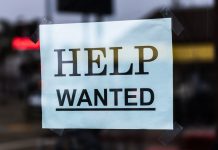Recently, under the insistence of outgoing New York city mayor Bloomberg the?New York City Council approved adding electronic cigarettes to a ban on smoking in offices, restaurants, bars and parks, a move that may be followed by other U.S. cities.
E-cigarettes, battery-operated tubes that simulate the effect of smoking by producing nicotine vapor.
This decree brought this writer back in time when I was smoking and living in New York city. At the time, this was not only big news in the city but also nationally. New York has long been a trend setter on many issues that effect major metropolitan areas. Ever since mayor Bloomberg took office in 2002 he has waged war on smoking in public buildings in New York.
I can remember quoting some superlatives in the direction of mayor Bloomberg when I had to abandon my coffee or beer and go stand out on the street often times in brutal New York cold. Even though my discomfort was exasperating , I was understanding how nasty cigarette smoking is and how the health concerns from second-hand smoke are real so I just “grinned and bore it.”
Advocates for Electronic Cigarettes[E-Cigs] are pushing back at the good mayor stating that?e-cigarettes don’t produce the toxic and carcinogenic byproducts found in second-hand smoke. In addition, the partakers?who call the practice ?vaping,? have alleged that e-cigs are an alternative to traditional smoking in many aspects and at the top of that list is that many turn to the product to wean themselves from the powerful addiction of traditional cigarette smoking?and shouldn’t be stigmatized. From Crain’s:
Tobacco industry analysts are watching e-cigarette regulation in New York and potential bans in Chicago and Los Angeles because of the possibility that other cities will follow suit, said Ken Shea, a senior analyst with Bloomberg Industries in Skillman, New Jersey. Such bans may curb e-cigarette sales, estimated next year at $3 billion annually, he said.
Making a less harmful product for the marketplace should be drawing praise from the good mayor. However, this has not been the case. The key position for Pro-Ban advocates is that?e-cigs somehow facilitate tobacco smoking. However, clinical evidence has indicated the opposite. The NYC e-cigarette ban will only discourage smokers of combustible cigarettes who want to switch to an alternative product.
At the present, the Food and Drug?Administration has not regulated the e-cig industry but are considering doing so in the near future.
In fact, this ban would do more harm than good for a myriad of reasons. But, the most glaring one is that this ban would not cut exposure to second-hand smoke because there is no smoke.
Science concerning ?e-cigs is like the industry itself fairly new. Several studies have found that e-cigs where just as effective in helping people stop smoking as the FDA approved nicotine patches. The Health Research Council of New Zealand?concluded?that e-cigs have only a few adverse effects ? far fewer than tobacco. From?The New York Post:
Andrew Rigie of the New York City Hospitality Alliance, the trade association for restaurants and bars, testified that e-cigarettes have not become an issue of concern among his members.
It seems that regular folks can tell that the blue LED light on the tip of many e-cigs from the red burning ember at the end of real cigarettes. It helps that vapor doesn’t stink the way tobacco smoke does.
The bottom-line Pro-Ban advocates make the case that there is just to little data on the product and the proper thing to do is to ban until there is more information. Proponents for the the electronic cigarette industry say no to this assumption and proclaim the prudent thing to do is help people trying to quit smoking.
Lastly, with 3 billion sales projected in this coming year the E-Cig industry has a place in the new innovated genre of the American business persona. With this innovation comes new business ventures that can create jobs and other plausible positives. Small ?start-up companies like Vape On Liquids?can be the type of new growth markets needed in our economy to spur jobs and tax revenues for local and state economies.
Edited/Published by: SB






